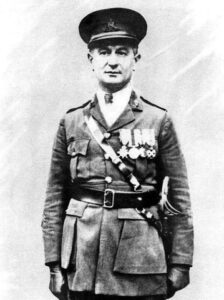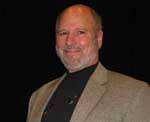By Jerry Klinger

[Photo credit: Geni]

BOYNTON BEACH, Florida — His name was John Patrick Danny. At least, that was the name he chose for himself when he enlisted in the British Army in 1896. He lied to the army when he said he was 18 years old. He said he was born in Whitechapel, another lie. Whitechapel was a poor, predominantly Jewish immigrant area of East London.
Danny filled out his enlistment papers, adding that his religious affiliation was with the Church of England.
Recruiters, then and today, in armies worldwide, including the U.S., blink when filling in their quotas of enlistees. They ignored the obvious issues, such as Danny’s strange accent for a Londoner.
Danny lied about who he was.
Danny was born Rezso Engel in 1873, in a tiny village in the Gömör-Kishont region of the Kingdom of Hungary. He and his whole family were Jews.
His parents and older siblings immigrated to New York. Rezso stayed in Hungary with his grandmother. He walked hours to attend cheder, Jewish religious school, where he excelled.
When his grandmother died, he went to New York, reconnecting with his family. He did not like America. Within a few months, he worked his way back to England, where he found a home. He found the British Army.
Rezso Engel was given a very strong, very common-sense bit of advice for a Jew. If he was going to the army, he better Anglicize his name. British antisemitism, especially in the British army was very real.
Rezso shed his Jewish name, his Jewish identity, his Jewish religion.
It was not unusual for Jews to shed their identity and heritage to make it in the non-Jewish world. My uncle was an Austrian refugee in 1939 in the U.K. He was strongly advised to change his German sounding name. Many of the German-Austrian Jews did the same thing. My uncle opened a telephone book and ran his fingers down the Ks until he settled on a name, a Scottish name as luck would have it. When he entered the British army to fight the Nazis, his name said he was Scottish. His heavy German accent said he was something else.
Whether Danny sincerely chose a different path to God or did so for pragmatic reasons is unknown. He never denied his Jewish identity. He never adhered much to any religious identity. It does not matter. What he did with his life had little to do with being a Christian or a Jew. He did what he did because he loved Britain and the British army.
The army sent Danny for training as a gunner to the Royal Horse Artillery Depot at Woolwich, issuing him service number 16481. He excelled in his training and rose in the enlisted ranks. Though offered earned promotions, he declined them, saying he wanted to stay closer to the men of his batteries.
Danny fit in well with the other soldiers of Britain’s very small, professional, standing army.
He spent 12 years in the British army, nine in India, before retiring in 1909.
Civilian life was difficult for Danny. He tried to be a teacher; he wanted to be a writer. He wanted a home life. He had no family and was estranged from his American family until the 1920s. Danny married a servant girl from Ham, Edith Gull, around 1912. He continued to keep his Jewish background a secret, even from his wife.
Two years later, the dark clouds of World War I gathered over Europe. Though not obligated to because he had already served, when the call to the Colors came, Danny answered. He enlisted as a gunner. By early November, he was sent to France and quickly moved into the front lines.
The British Expeditionary Forces were heavily engaged in fighting with the Germans since August. In some units, 80% of the men, were dead or wounded. By January 1915, what was left of the small professional British army had accomplished the impossible. They had stopped a massive German victory. They had faced down the Germans, who were ten times their size.
The Kaiser was informed the British had stopped his armies. He reputedly angrily remarked, those “Old Contemptable” Brits. Whether it was true or not, the name the “Old Contemptibles” stuck to the British soldiers who ferociously stopped the Germans in the early part of the European War.
Danny fought for four more years. He was wounded three times, twice seriously. The second severe wound disabled him for life. He was sent back. Danny was a field-appointed second Lt. when he was discharged. He had turned down a Captaincy to stay with his unit.
The horrific war, The War to End All Wars, ended in November 1918. Millions upon millions of lives had been lost. Britian quickly demobilized the men, returning them to try and start new lives.
PTSD, war injuries compounded by the economic downturn made the transition back very difficult. Danny personally experienced and witnessed that. He interceded regularly to help them from his minor work position and his association with the British Legion. By 1921, he faced bankruptcy. He mucked along like many veterans.
Four years later, in 1925, an idea came to him. The “Old Contemptibles” had begun calling themselves “Chumbs.” Why not organize them to look after their own interests and place in British history?
Danny’s simple idea caught on. Within a few years, there were 130 branches in the U.K. and more around the world. Captain Danny was the recognized leader of the “Old Contemptibles.” The military finally agreed to recognize his retired rank.
He organized an “Old Contemptibles” return to Belgium, a victory and memorial tour to battlefields they served and died on, like Mons. Fundraising fell short. Danny, never a wealthy man, underwrote the 200-man delegation. He could not attend because he did not have the funds for himself.
Danny was beloved by thousands when he suddenly died in 1928 in Hackney. His funeral bier was attended by thousands. Ten thousand lined the streets.
https://www.britishpathe.com/asset/41790/
For many years, his gravesite was attended to by a Chumb. In 1974, the Chumb passed on. Danny’s gravesite became overgrown, disappearing in natural vegetative growth and the unappreciated history of sacrifice.
A week ago, JASHP placed a historical marker on the site of the surviving but decayed building where the “Old Contemptibles” was conceived.
The Text reads below a Star of David.
“In proud memory of Jewish WW1 Officer Capt. John Danny, RA
(Born Rezso Engel, in Hungary 1873, died in Hackney 1928)
who lived in Hackney and founded in this building, the 1914 National Association of the ‘Old Comtemptibles’ war veterans of the U.K. Their heroic stand in France saved Britain. He is buried at Abney Cemetery.
Be strong and of good courage (Joshua 1:9)
הלוא צויתיך חזק ואמץ
(The Jewish American Society for Historic Preservation U.K. Branch, AJEX UK)”
https://www.hmdb.org/m.asp?m=264457
JASHP is making efforts to clear and restore Danny’s gravesite with little success.
*
Jerry Klinger is the President of the Jewish American Society for Historic Preservation, www.JASHP.org.